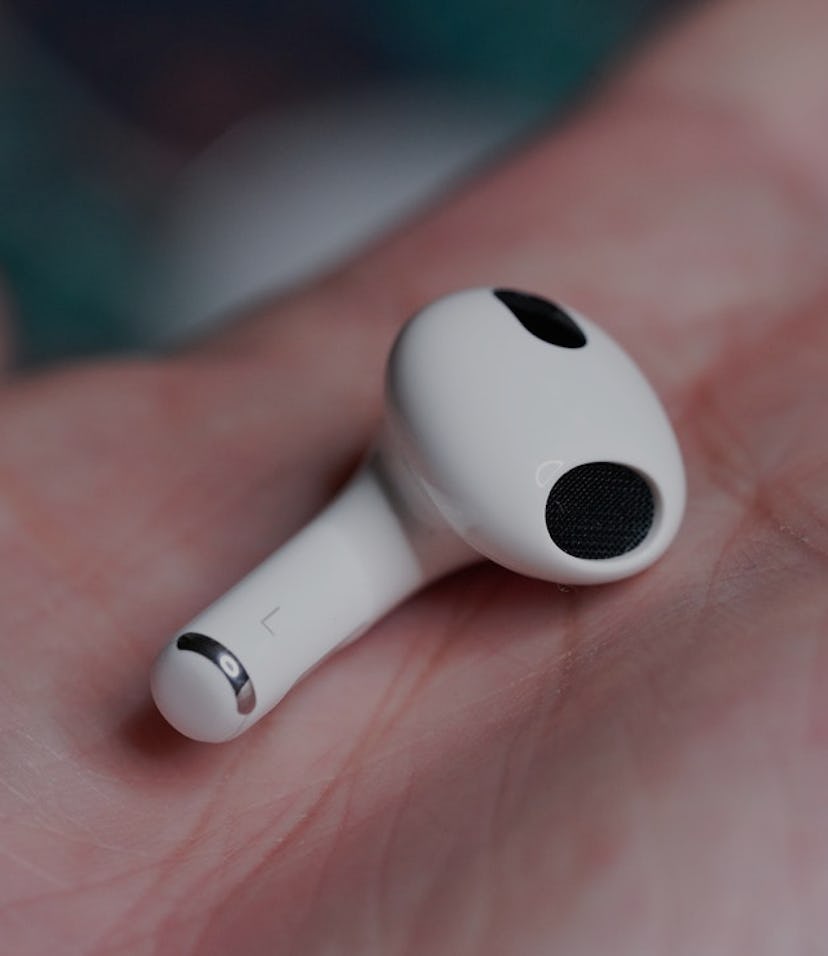Guides
How to factory reset your AirPods to fix any issues
If you’re experiencing audio quality or connectivity issues with your AirPods earbuds, a hard reset might be the fix you need.

The AirPods 3 are one of our favorite wireless earbuds options right now — the design is stylish and lightweight, the sound quality is superb, and the battery life is longer than any other AirPods. The only thing these buds are missing is active noise cancellation, which is covered only with the AirPods Pro (still great despite launching in 2019).
But even the best wireless earbuds run into issues sometimes. If your AirPods are acting up and you aren’t sure why, the best way to start troubleshooting is with a complete factory reset. While that might sound like an extreme option for your iPhone where you have saved documents, photos, and personal information, it’s really no big deal for a pair of buds. You’ll just have to reconnect them to your devices when they restart.
Factory resetting a pair of AirPods is simple, but the process isn’t obvious. There are no menus to sift through — you’ve just gotta know the right buttons to press.
Why would you need to factory reset your AirPods?
There’s no official list of issues that can be solved with a factory reset. It’s sort of a cure-all for unexplained software issues. If you’re experiencing any of the issues below, a factory reset might help.
- Any sort of audio degradation: If you’re experiencing patchy audio, static, or different audio quality in either earbud, don’t ignore it.
- Connectivity issues: If your AirPods are suddenly having issues connecting to your go-to devices or cannot seem to find new devices to connect to, the Bluetooth issues could be resolved with a reset.
- Trouble charging properly: Unless your AirPods have been physically damaged or have dirty charging ports, you shouldn’t run into charging issues. If your AirPods are plugged in but not charging, you should reset them.
- Automatic Ear Detection isn’t working: Automatic Ear Detection is the feature that pauses your audio if you remove either earbud. If this feature is enabled in your settings but doesn’t seem to be working, a reset could do the trick.
- Your AirPods’ battery is draining quickly: If you have an older pair of AirPods, it's definitely possible that the battery is past its prime. If that’s the case, you may need to replace the battery entirely. But if you have a newer pair of AirPods and think the battery just isn’t performing properly, it could be solved with a reset.
How to factory reset your AirPods
The factory reset process is the same across AirPods models, so you’ll be able to follow these instructions no matter what version of the buds you have.
- Put your AirPods in their charging case and close the lid. If your AirPods have already been sitting in the charging case, you’re good to go. If you just put them in, wait at least 30 seconds before continuing.
- Open the lid of the charging case without removing the buds.
- You’ll want to disconnect the AirPods from any devices. If they automatically connect to your iPhone, iPad, or Mac, you can go into the device’s “Settings,” find the “Bluetooth” menu, select your Airpods from the menu, and select “Forget This Device.”
- With the charging case lid still open, press and hold the button on the backside of the case. Hold the button until the status light on the front of the charging case flashes amber, then white. This should take about 15 seconds. If the white light doesn’t appear, shut the lid, open it, and try again.
- Once the status light flashes white, your AirPods have been reset. You’ll need to reconnect them to your device. All settings on your AirPod will also reset, so you’ll need to adjust any customizations you had enabled like connection preferences or controls in your “Bluetooth” settings.
Hopefully, a factory reset fixes whatever issues you were experiencing with your Airpods. If you’re still experiencing the same problems, you could attempt another rest but you might need to deal directly with Apple for a more advanced fix. Or you could opt for an entirely new pair of earbuds if your AirPods have reached the end of their lifecycle.